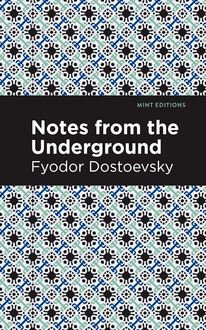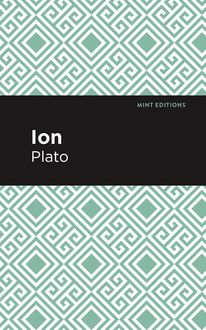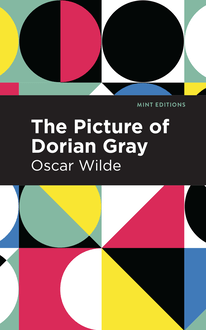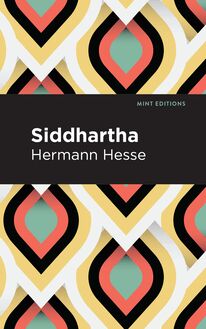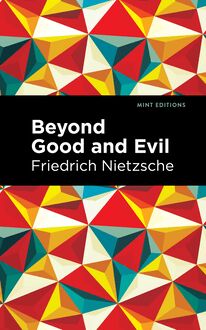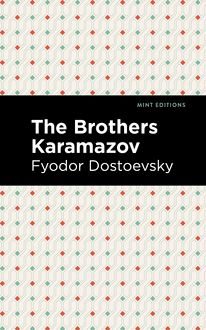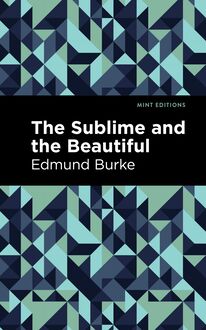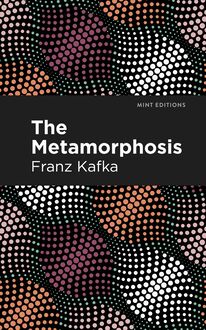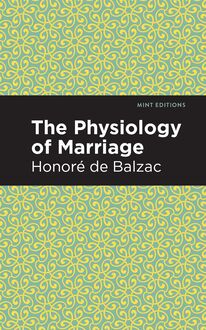-
 Univers
Univers
-
 Ebooks
Ebooks
-
 Livres audio
Livres audio
-
 Presse
Presse
-
 Podcasts
Podcasts
-
 BD
BD
-
 Documents
Documents
-
- Cours
- Révisions
- Ressources pédagogiques
- Sciences de l’éducation
- Manuels scolaires
- Langues
- Travaux de classe
- Annales de BEP
- Etudes supérieures
- Maternelle et primaire
- Fiches de lecture
- Orientation scolaire
- Méthodologie
- Corrigés de devoir
- Annales d’examens et concours
- Annales du bac
- Annales du brevet
- Rapports de stage
La lecture à portée de main
Vous pourrez modifier la taille du texte de cet ouvrage
Découvre YouScribe en t'inscrivant gratuitement
Je m'inscrisDécouvre YouScribe en t'inscrivant gratuitement
Je m'inscrisEn savoir plus
Vous pourrez modifier la taille du texte de cet ouvrage
En savoir plus

Description
The Prayers and Meditations of Saint Anselm (1070-1080) is a collection of writings by Anselm of Aosta. Written during his time at Bec Abbey in Normandy, The Prayers and Meditations of Saint Anselm is a deeply personal and meditative work of theology written by a figure whose service as Archbishop of Canterbury is noted for his fierce independence from royal authority and devotion to meaningful reform in the Catholic Church. Included in this collection are Anselm’s “Prayer to God,” a meditation focused on the Lord’s Prayer, and the “Prayer to Christ,” a moving piece that addresses the importance of John, Peter, and Mary Magdalene to the Son of God. Apparent throughout The Prayers and Meditations of Saint Anselm are the author’s preoccupation with the nature of the soul, the doctrine of original sin, and the mysteries inherent to belief. Often considered the father of scholasticism, an important medieval school of philosophy, Anselm believes foremost in the ability of reason to sharpen and illuminate faith, allowing him to reconcile his Christian identity with his application of Neoplatonism while maintaining the supremacy of the Church and God over all aspects of inquiry. Canonized as a saint following his death in 1109, Anselm has long been recognized as a leader in the medieval Church and as a foundational figure for Christianity in England. With a beautifully designed cover and professionally typeset manuscript, this edition of Anselm of Aosta’s The Prayers and Meditations of Saint Anselm is a classic of Christian theology reimagined for modern readers.
Sujets
Informations
| Publié par | Mint Editions |
| Date de parution | 01 juin 2021 |
| Nombre de lectures | 0 |
| EAN13 | 9781513272856 |
| Langue | English |
| Poids de l'ouvrage | 3 Mo |
Informations légales : prix de location à la page 0,0450€. Cette information est donnée uniquement à titre indicatif conformément à la législation en vigueur.
Extrait
The Prayers and Meditations of Saint Anselm
Anselm of Aosta
The Prayers and Meditations of Saint Anselm was first published in 1872.
This edition published by Mint Editions 2021.
ISBN 9781513267852 | E-ISBN 9781513272856
Published by Mint Editions ®
minteditionbooks .com
Publishing Director: Jennifer Newens
Design & Production: Rachel Lopez Metzger
Translated By: M.R.
Project Manager: Micaela Clark
Typesetting: Westchester Publishing Services
C ONTENTS I NTRODUCTION F IRST M EDITATION . O F THE D IGNITY AND THE W OE OF M AN ’ S E STATE S ECOND M EDITATION . O F THE A WFUL J UDGEMNT : F OR A WAKENING F EAR IN O NESELF T HIRD M EDITATION . A B EMOANING OF V IRGINITY S ADLY L OST F OURTH M EDITATION . T EACHING THE S INNER TO B ESTIR HIMSELF FOR THE A MENDMENT OF HIS S INS F IFTH M EDITATION S IXTH M EDITATION . D ESIGNED TO B RACE THE H EART A GAINST D ESPAIR , FORASMUCH AS WE SHALL WITHOUT DOUBT FIND T RUE M ERCY FOR ALL O UR S INS IF WE DO T RUE P ENANCE S EVENTH M EDITATION E IGHTH M EDITATION . T HE P ENITENT ’ S A DDRESS TO GOD HIS F ATHER N INTH M EDITATION . O F THE H UMANITY OF C HRIST T ENTH M EDITATION E LEVENTH M EDITATION . O F THE R EDEMPTION OF M ANKIND T WELFTH M EDITATION . O F THE H UMANITY OF C HRIST T HIRTEENTH M EDITATION . O F C HRIST F OURTEENTH M EDITATION F IFTEENTH M EDITATION . O F THE M EMORY OF P AST B ENEFITS FROM C HRIST , OF THE E XPERIENCE OF P RESENT B ENEFITS , AND OF THE H OPE OF F UTURE S IXTEENTH M EDITATION . O F P RESENT B ENEFITS FROM G OD S EVENTEENTH M EDITATION . O F F UTURE B ENEFITS FROM G OD E IGHTEENTH M EDITATION . T HANKSGIVING FOR THE B ENEFITS OF THE D IVINE M ERCY , AND P RAYER FOR THE D IVINE A SSISTANCE N INETEENTH M EDITATION . O F THE S WEETNESS OF THE D IVINE M AJESTY , AND OF M ANY O THER T HINGS T WENTIETH M EDITATION T WENTY -F IRST M EDITATION
I NTRODUCTION
The See of Canterbury, in a period of hardly more than one hundred years, was held by three of the greatest Saints of England—St. Anselm, St. Thomas, and St. Edmund. These three, wonderful in their perfection, each distinct from the other, and in the gifts which constituted that perfection, had all one task, which was to vindicate the liberty and purity of the Church by suffering, by exile, and, though only one received the martyr’s crown, by the sacrifice of a martyr’s will. Yet how variously the Holy Ghost ripened and formed them! St. Anselm’s chief perfection was the illumination of the speculative intellect by the gifts of science and understanding: that of St. Thomas the elevation and grandeur of the will by fortitude and holy fear: that of St. Edmund the sanctification of the practical intellect by the gifts of counsel and of wisdom.
The works of St. Anselm exhibit an intellectual light, order, subtilty, penetration, and precision which give him a high place among the scholastic theologians of whom he was the forerunner and the guide. But even in the purest intellectual exercise of the reason, his writings are pervaded by the gift of piety, which makes its warmth sensibly felt. He may be regarded as the type of faith, rendering to God the reasonable service of the intellect. This rationabile obsequium , which is the highest perfection of the human intelligence, springs from faith. Reason precedes faith indeed in judging of the motives of credibility: and the last act of reason judging of evidence precedes the first act of faith in believing the revelation of God. But when revelation has been once received, the grace of faith is unfolded by the gift of intellect into the faith which is one of the twelve fruits of the Holy Ghost. Faith as a virtue illuminates the intelligence, but faith as a fruit of the Holy Ghost understands, so far as God permits, the intrinsic reason of what it believes. St. Anselm explains his whole method in these words: “As the right order demands that we should first believe the deep things of the Christian faith before we venture to discuss them by reasoning, so it appears to me to be negligence, if, after we are confirmed in faith, we should not endeavour to understand what we believe.” 1 Here we have his method in direct contradiction to the rationalism of these later days, which makes reason the test, the measure, and the criterion of faith, destroying thereby the essence of faith, as well as the matter proposed to its belief. As St. Augustine says, “If you ask of me, or of any other Doctor, not unreasonably, that you may understand what you believe, correct your definition, not so as to reject faith, but so as to perceive by the light of reason the things which by the firmness of faith you already hold… Therefore it was reasonably said by the Prophet, ‘Unless you believe, you will not understand,’ ” 2 so St. Ansolm begin where he prefers. And, indeed, it is for this reason that they have been divided into sections; 3 that the reader may easily choose a place for beginning or for stopping, and so avoid the weariness and annoyance which would be produced by too prolonged application to the book, or by repeated reperusal of one and the same passage; and that he may thus be the more likely to reap some pious dispositions from them; for this was the end had in view in their composition.
1 . Cur Deus Homo , lib. i. c. 2.
2 . De peccat. merites , c. xxi. 16, tom. x. p. 16.
3 . “Ad hoc enim ipsum paragraphis sunt distinct æ ;”—divided into sections by means of marks in the margin; or, divided into sections by means of inserted headings. Thus in one of his letters (i. 20), writing of some prayers to the Mother of God composed by him, he says, “Denique idcirco volui eas ipsas orationes per sententias paragraphis distinguere, ut anticipando longitudinis fastidium, ubi volueris, possis eas legendo incidere.”
Of the meditations attributed to St. Anselm, the majority, as we find them in the printed editions, are not characterised by bracketed headings or by subtitles; nor are their obvious subdivisions indicated by what we should call unbroken paragraphs. The translator has therefore ventured to insert into such of the meditations as do not in the printed editions show where they are capable of an unforced subdivision, a suitable subtitle, or at least a numerical indication. He has done this not irreverently, he trusts, to the saint, nor impertinently, he ventures to hope, to the reader. To the compassion of the one and to the indulgence of the other does he commit himself; adding only this, that whatever has been inserted by him is included within square brackets.
First Meditation
O F THE D IGNITY AND THE W OE OF M AN ’ S E STATE
(§ 1.) I. Our creation to the Image and Likeness of God . Awake, my soul, awake; bestir thy energies, arouse thy apprehension; banish the sluggishness of thy deadly sloth, and take to thee solicitude for thy salvation. Be the rambling of unprofitable fancies put to flight; let indolence retire, and diligence be retained. Apply thyself to sacred studies, and fix thy thoughts on the blessings that are of God. Leave temporal things behind, and make for the eternal.
What, then, in so divine an occupation of the mind, canst thou conceive more useful or more salutary than to recall in delighted musing thy Creator’s boundless benefits to thee? Consider what grandeur and what dignity He bestowed on thee in the very beginning of thy creation, and ponder well what loving and what adoring worship thou shouldest therefore pay Him.
It was assuredly a noble purpose which He formed for the dignity of thy state, when, creating and ordering the universal frame of the visible and the invisible creation, He determined to make man; for He determined to lavish richer honours on man’s nature than on all other creations in the universe. Behold thy lofty origin, and bethink thee of the due of love thou owest thy Creator. “Let Us make man,” said God, “to Our Image and Likeness” (Gen. i. 26). If thou awakest not at this word, O my soul; if thou art not all aflame with love of Him for His so ineffable graciousness of condescension towards thee; if thine inmost marrow burns not with longings after Him, what shall I say? Asleep shall I call thee? Or must I rather think thee dead? Consider diligently, therefore, what it is to have been created to God’s Image and God’s Likeness; thou hast in this thought the sweet earnest of a pious meditation in which thy musings may have full play.
Observe, then, that likeness is one thing; image another. For example, the horse, the ox, or other dumb animal may have a certain likeness to man; but the image of man is borne by none but a human being. Man eats, so does the horse; here is a certain likeness, a certain something common to creatures of diverse moulds. But the image of man is only borne by some human being, some being of selfsame nature with that man whose image he is. Image, therefore, is of a higher order than likeness.
God’s Likeness, then, may be attained by us in this way; if, musing on Him as the Good, we study to be good; if, owning Him the Just, we strive to be just; if, contemplating Him the Merciful, we make endeavours after mercy.
But how to His Image? Listen. God ever remembers Himself, understands Himself, loves Himself. If thou, therefore, after thy poor fashion, art unweariedly mindful of God, if thou understandest God, if thou lovest God, thou wilt then be man “to His Image;” for thou wilt be striving to do that which God does eternally. ’Tis the duty of man to bend his whole being to this task; the task of remembering, of understanding, and of loving the Highest Good. To this idea should every thought and every turn and folding of thy heart be moulded, chased, and formed; to be mindful of God, to understand Him, and to love Him; and thus savingly exhibit and display the dignity of thine origin in that thou wast created to the Image of God.
But why say that thou wast created to His Image, when, as the Apostle testifies, thou art indeed His Image? “The man,” he says,
-
 Univers
Univers
-
 Ebooks
Ebooks
-
 Livres audio
Livres audio
-
 Presse
Presse
-
 Podcasts
Podcasts
-
 BD
BD
-
 Documents
Documents
-
Jeunesse
-
Littérature
-
Ressources professionnelles
-
Santé et bien-être
-
Savoirs
-
Education
-
Loisirs et hobbies
-
Art, musique et cinéma
-
Actualité et débat de société
-
Jeunesse
-
Littérature
-
Ressources professionnelles
-
Santé et bien-être
-
Savoirs
-
Education
-
Loisirs et hobbies
-
Art, musique et cinéma
-
Actualité et débat de société
-
Actualités
-
Lifestyle
-
Presse jeunesse
-
Presse professionnelle
-
Pratique
-
Presse sportive
-
Presse internationale
-
Culture & Médias
-
Action et Aventures
-
Science-fiction et Fantasy
-
Société
-
Jeunesse
-
Littérature
-
Ressources professionnelles
-
Santé et bien-être
-
Savoirs
-
Education
-
Loisirs et hobbies
-
Art, musique et cinéma
-
Actualité et débat de société
- Cours
- Révisions
- Ressources pédagogiques
- Sciences de l’éducation
- Manuels scolaires
- Langues
- Travaux de classe
- Annales de BEP
- Etudes supérieures
- Maternelle et primaire
- Fiches de lecture
- Orientation scolaire
- Méthodologie
- Corrigés de devoir
- Annales d’examens et concours
- Annales du bac
- Annales du brevet
- Rapports de stage
